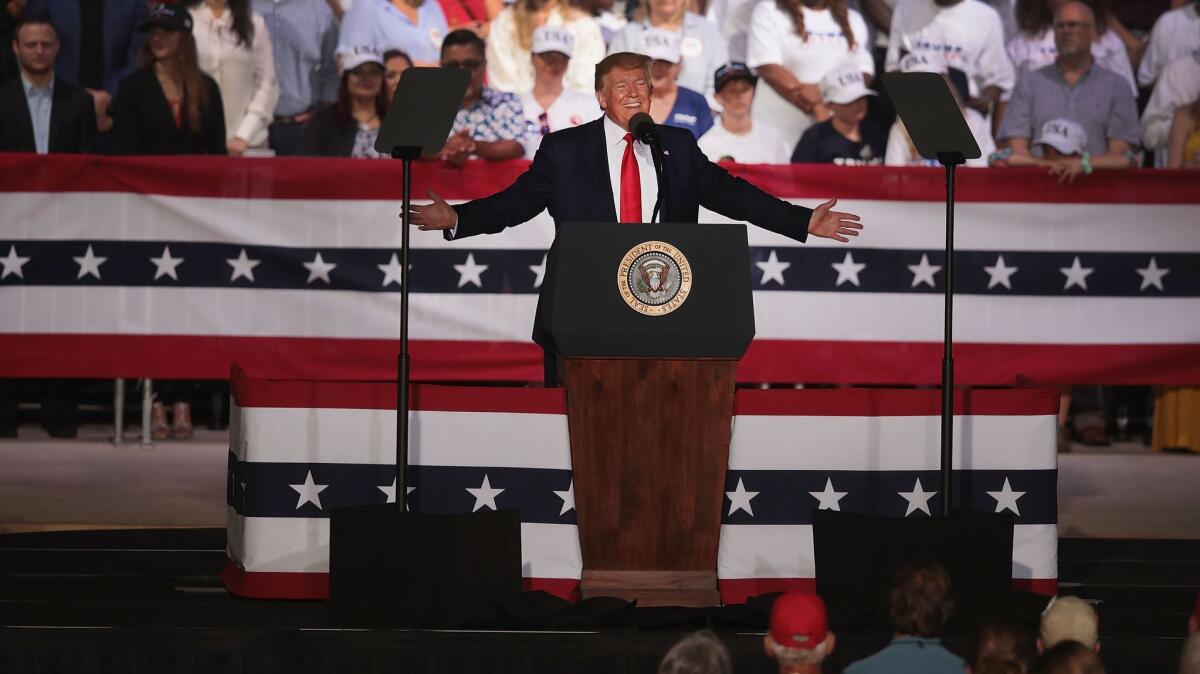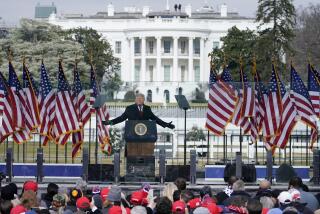Editorial: Battle over the census shows the need to rein in executive privilege

For the second time in five weeks, President Trump has invoked executive privilege to block Democrats in the House of Representatives from obtaining important documents and testimony. If he doesn’t back down and agree to give lawmakers the material they’re seeking, the courts may have to rein in executive privilege to prevent him and his successors from evading legitimate oversight.
Presidents as far back as George Washington have withheld material from Congress to protect sensitive national security information or shield internal discussions from the sort of scrutiny that would deter candid, thorough debates. The courts have often upheld those moves under the separation-of-powers doctrine, but not always; for example, the Supreme Court held in United States vs. Nixon that a president may not conceal information sought in a criminal proceeding.
The issue here may not rise to the level of the Watergate break-in, but it does involve allegations of impropriety and deceit. The House Oversight Committee issued subpoenas for internal administration documents and testimony related to the Commerce Department’s decision to add a citizenship question to the 2020 census. Commerce insists that it did so at the request of the Justice Department, which supposedly wanted the information to help it enforce the Voting Rights Act. But critics of the move have unearthed evidence that department officials have been lying, and that the push to add the question started with a Republican consultant who said it would help “Republicans and non-Hispanic white voters” by dampening Latino participation in the census and ultimately diluting their communities’ political power. In other words, it’s not about voting rights — it’s about shifting federal funds and congressional seats away from immigrant-heavy areas.
Enter the Fray: First takes on the news of the minute »
The Oversight Committee is trying to get to the bottom of this, which is just the sort of thing congressional committees ought to do. If the administration is seeking to change the census for reasons other than improving the accuracy of the count, then it’s not fulfilling its constitutional duty to faithfully execute the law. Executive privilege cannot become a shield enabling the administration to deceive the public about major policy changes.
Late Wednesday, the Oversight Committee voted largely along party lines to hold Commerce Secretary Wilbur Ross and Atty. Gen. William Barr in contempt for not complying with the subpoenas. Ross responded by accusing the committee of “flagrant political posturing,” saying his department had provided about 14,000 pages of documents and made multiple officials available for interviews. The number of pages and witnesses don’t matter, however, if they aren’t the right pages and witnesses. The administration needs to come clean on the census, either voluntarily or with a shove from the courts.
Follow the Opinion section on Twitter @latimesopinionand Facebook
More to Read
A cure for the common opinion
Get thought-provoking perspectives with our weekly newsletter.
You may occasionally receive promotional content from the Los Angeles Times.






